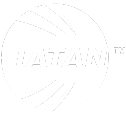THE POWER OF EMPLOYEE RECOGNITION: HOW IT DRIVES EMPLOYEE RETENTION
At Imagine, we have a collaborative team culture that builds trust, communication, and passion to inspire our guests to experience moments they’ll never forget. We recognize our employees’ efforts and reward them by sending them on trips around the world such as Tanzania, Italy, Alaska, and even curated experiences in their own areas. Below, you can learn more about why employee recognition is important to building your team, how recognition impacts employee retention, and some unique ways to make your employees feel valued.
The Importance of Employee Recognition
Employee recognition is a crucial aspect of any successful organization. It serves as a powerful tool to motivate and engage employees, ultimately leading to higher levels of job satisfaction and improved retention rates. When employees feel valued and appreciated for their hard work, they are more likely to remain committed to their organization.
One of the primary reasons why employee recognition is important is its positive impact on employee morale. When employees receive recognition for their achievements, it boosts their self-esteem and confidence. This, in turn, enhances their overall job satisfaction and motivates them to continue performing at their best. By acknowledging and appreciating employees’ efforts, organizations create a positive work culture that fosters loyalty and commitment.
Giving your employees recognition for their performance towards goal achievement plays a significant role in reinforcing desirable behaviors and outcomes. When employees are recognized for their contributions, it sends a clear message about the organization’s values and expectations. This recognition acts as a form of positive reinforcement, encouraging employees to continue exhibiting the desired behaviors and achieving exceptional results. We all want to feel appreciated, so sharing a team message, internal reward, or even a trip to somewhere, employees are more likely to stay with the organization, knowing that their efforts are acknowledged and appreciated. As a team culture value that drives results, let’s all make sure we appreciate each other.
The Impact of Employee Recognition on Employee Retention
Employee retention is a critical concern for organizations striving for long-term success. High turnover rates, which is 13.2% for tech companies according to the Gordon Flesch Company, not only disrupt workflow, but are also costly in terms of recruitment and training expenses. Employee recognition plays a pivotal role in reducing turnover rates and increasing employee retention.
When employees receive recognition for their hard work and dedication, they feel a sense of value and appreciation. This recognition creates a strong emotional bond between the employee and the organization, making it more difficult for them to consider leaving. Employees who feel recognized and appreciated are more likely to develop a sense of loyalty towards their organization, leading to increased job satisfaction and commitment.
Employee recognition programs and incentives
Implementing employee recognition programs and incentives is an effective way to drive employee retention. These programs provide structured frameworks for recognizing and rewarding employees’ efforts and achievements. By offering incentives, organizations can motivate employees to perform at their best and create a culture of appreciation.
Employee recognition programs can take various forms, such as Employee of the Month awards, peer recognition programs, or milestone celebrations. These programs not only acknowledge individual achievements but also foster a spirit of healthy competition and collaboration among employees. When employees see their colleagues being recognized, it inspires them to strive for excellence and contribute to the organization’s success.
In addition to recognition programs, organizations can offer a range of incentives to reward outstanding performance. These incentives can include monetary rewards, such as bonuses or salary increases, or non-monetary rewards, such as additional time off or flexible work arrangements. By tailoring incentives with Imagine Experience to meet the needs and preferences of employees, organizations can create a sense of personalized recognition and appreciation.
Employee recognition programs and incentives should be designed to be fair, transparent, and inclusive. It is essential to establish clear criteria for recognition and ensure that the process is unbiased and accessible to all employees. By fostering a sense of fairness and inclusivity, organizations can build trust and strengthen employee engagement, ultimately driving higher retention rates.
Creative ways to recognize and appreciate employees
Employee recognition doesn’t always have to be formal or structured. Organizations can employ creative and innovative ways to recognize and appreciate their employees, fostering a culture of appreciation and engagement.
One creative approach is to encourage peer-to-peer recognition. By empowering employees to recognize and appreciate their colleagues, organizations tap into the power of social recognition. Peer recognition not only enhances employee morale but also strengthens relationships and fosters a sense of teamwork. Teams can simply acknowledge others on platforms like Slack or Teams. A little recognition can go a long way to help boost the morale of your coworkers.
Your company or department can organize team-building activities that incorporate recognition and appreciation. For example, hosting team lunches or outings where employees can relax and connect with their colleagues while being recognized for their efforts can be highly effective. These activities not only provide a break from routine work but also create opportunities for employees to bond and celebrate their achievements together.
It is crucial to be creative and flexible when recognizing and appreciating employees. Each employee has different preferences and motivations, and organizations should strive to personalize recognition efforts accordingly. By adopting creative approaches, organizations can create a vibrant and engaging work culture that drives employee retention.
Conclusion: The power of employee recognition in driving employee retention
Employee recognition is a powerful tool that drives employee retention. When employees feel valued and appreciated for their contributions, they are more likely to remain committed to their organization. Recognition enhances employee morale, reinforces desirable behaviors, and fosters longevity within the team and company culture.
Read our case study on employee incentives: How Plymouth Rock Engaged Agents with Experiences Instead of Cash





